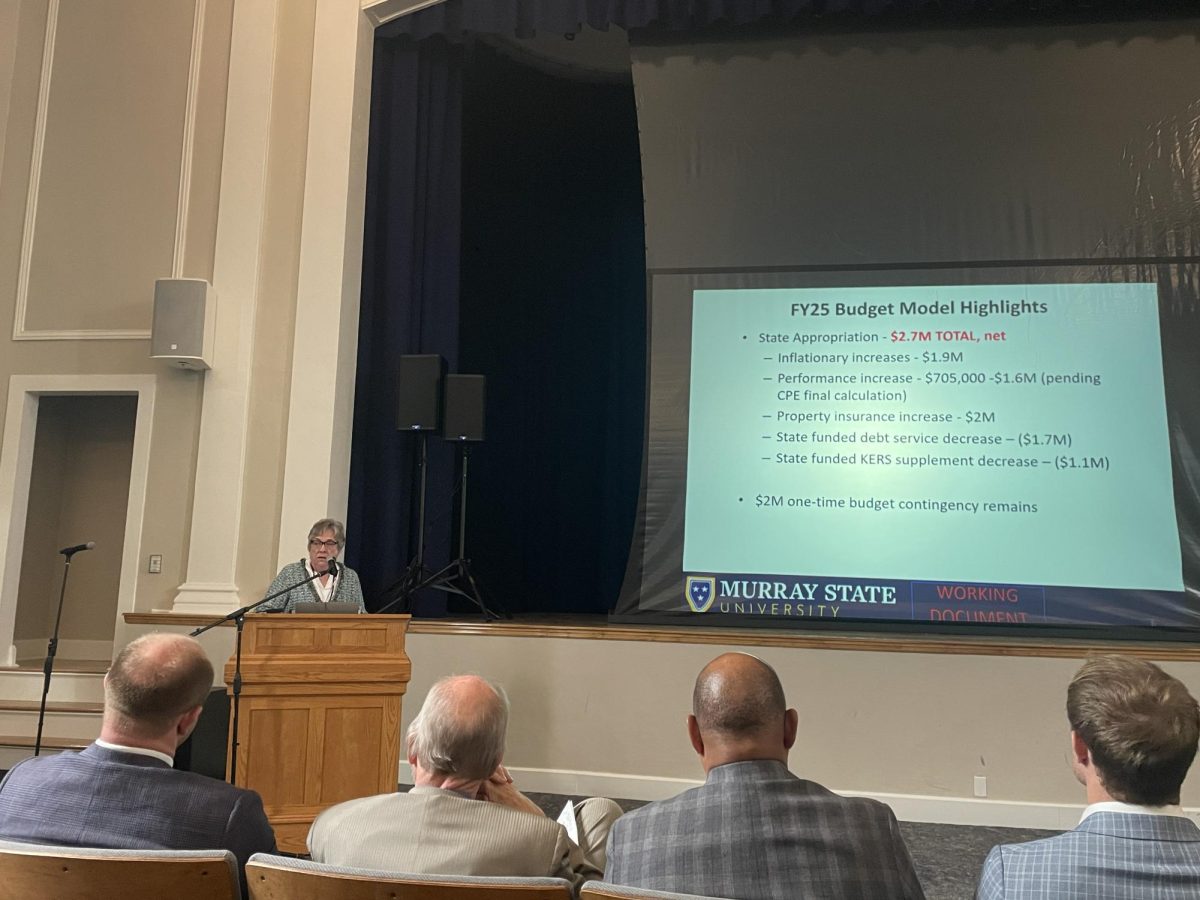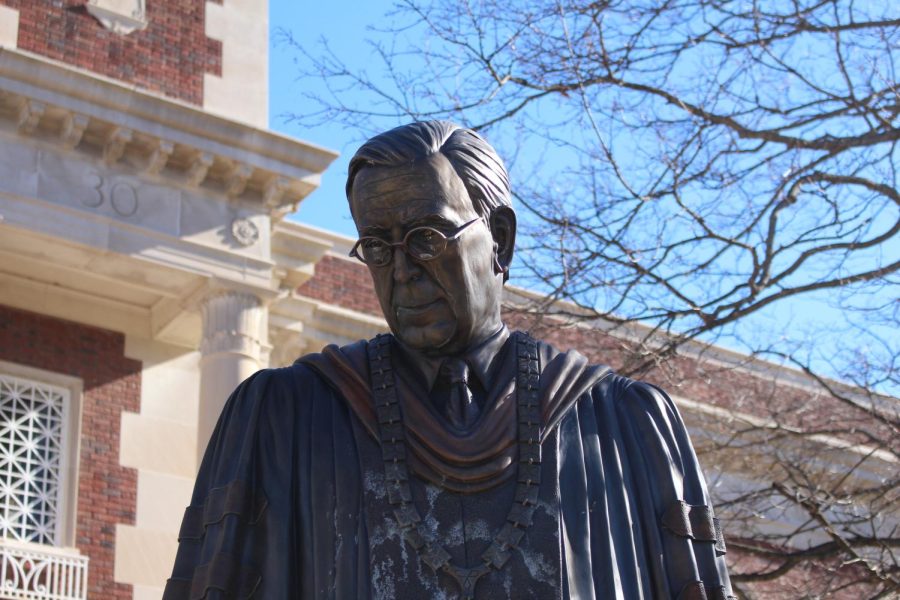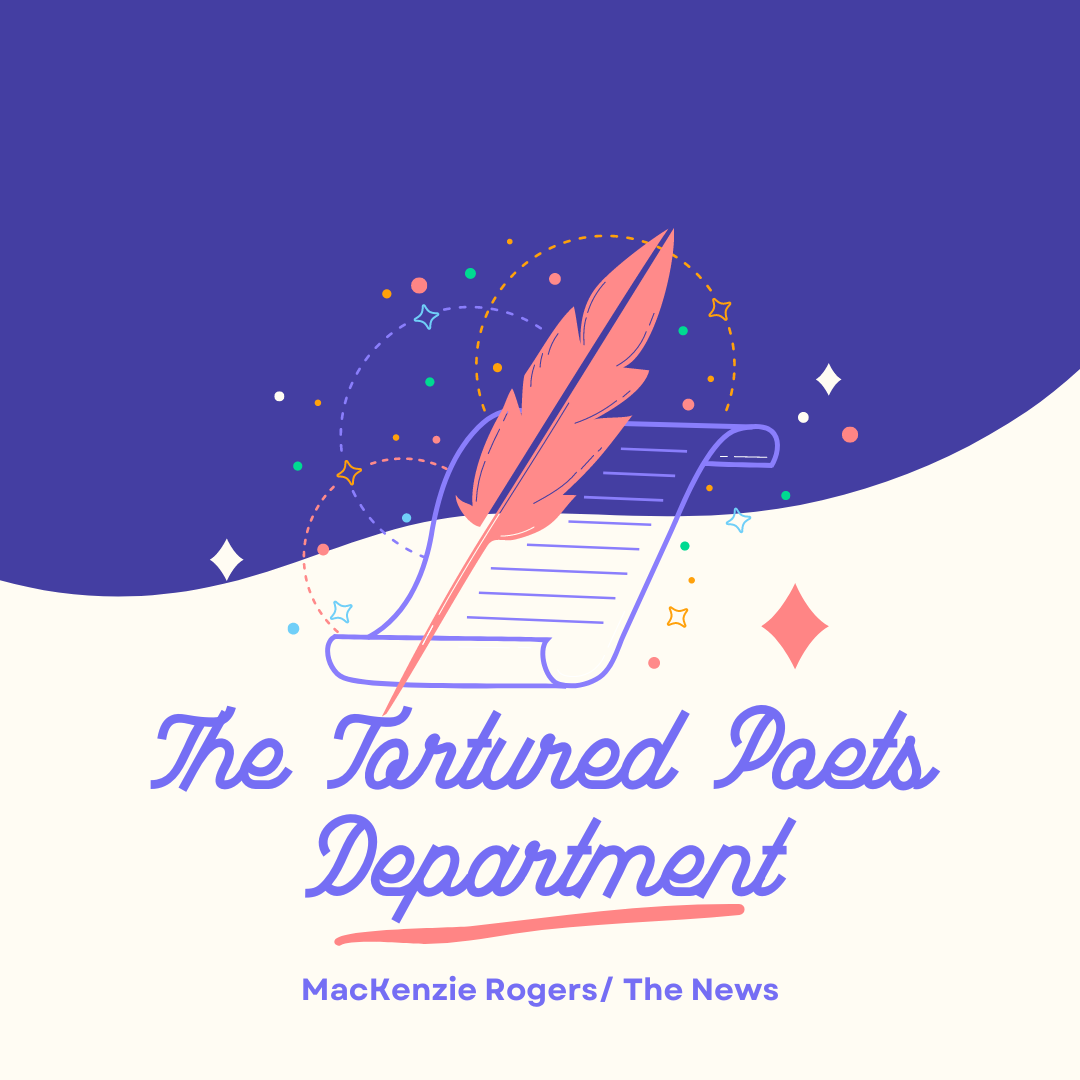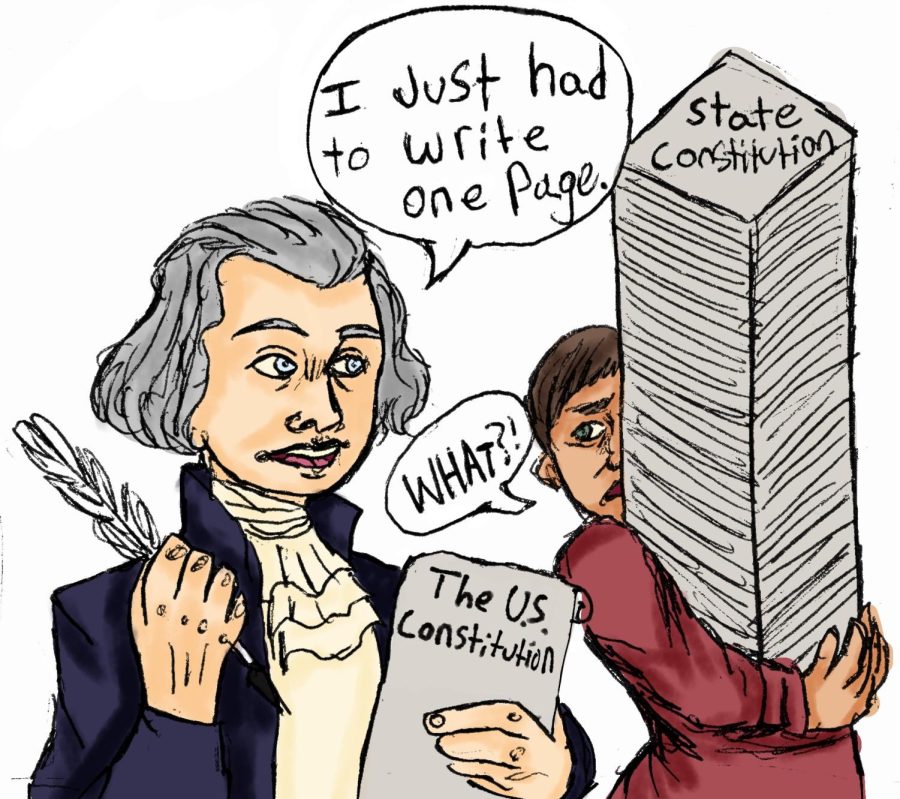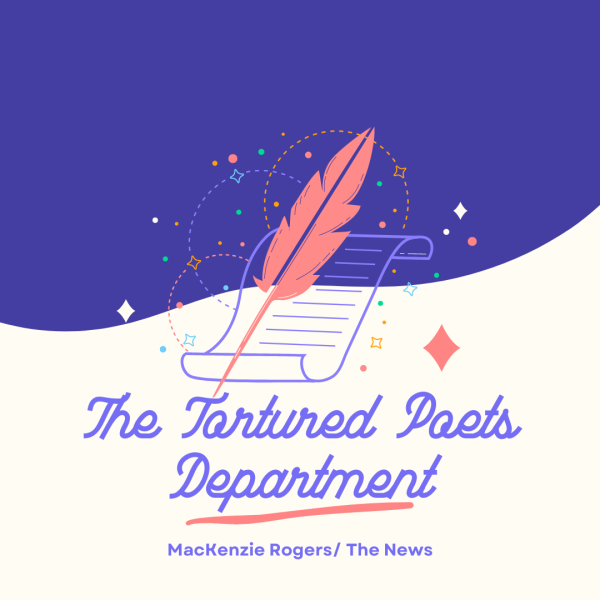Our View: The U.S. Constitution is a living document
September 14, 2022
Saturday, Sept. 7 is Constitution Day, meaning many Americans will celebrate the writing and signing of our Constitution. On Sept. 17, 1787, the U.S. Constitution was written, and since then, we have used it to set legal precedents and make decisions impacting our country.
Many people believe, despite the precedent, we should begin relying less on the Constitution as it was written. As more decisions are made, new precedents are set. Because of this, our legislators should begin to consider new ideas and not rely solely on the Constitution for decisions.
Although the Constitution was written to guarantee certain rights, the Founding Fathers could not have foreseen every possible outcome. While having a document to use for important legal decisions can help make sure we make effective decisions, it is important to remember the Constitution is a living document.
At The News, we believe a document written 235 years ago should not be considered when it comes to modern decisions impacting groups of people who weren’t considered during its writing. Essentially, the Constitution was written to govern the white men of society at the time. Because we have come so far in terms of rights and who has them, we should be able to now reframe the Constitution in a way that best benefits everyone better.
We can celebrate the progress and the milstone event, but to celebrate the Constitution as it stands today is ineffective. While we can learn about what the Constitution means to our country and its people, it is also important to remember the changing times we live in today.
At The News, we believe that consistency within the legal system is important for creating and maintaining laws and ensuring justice. Sometimes, however, politicians make decisions without taking into account the shifting ideas and needs of our people. When it comes to a decision made in 2022, we may take into consideration what the Founding Fathers wrote, but we certainly should not rely solely on decisions made in the 18th century.
One notable example is women’s suffrage granted by the 19th Amendment on August 26, 1920. The right for women to vote was not present in the Constitution but eventually that was changed to benefit society.
In terms of recent cases citing the Constitution, the Supreme Court of the United States overturned Roe v. Wade this summer on the grounds that it was unconstitutional because nothing within the Constitution states an inherent right to privacy and personal autonomy. Sure, the Constitution may not say anything regarding abortion, but things have changed significantly in terms of the rights and healthcare we have now.
Women’s suffrage and abortion rights are two different issues, one involving giving women the power to choose their legislators and one giving people the right to an abortion. Both may be different, but both are prime examples of using the Constitution as a framework for decision-making and offering free choice and autonomy. When it came to abortion this summer, however, the SCOTUS used the Constitution to argue that abortion was never present in the document and should not be an option.
We at The News believe decision-making bodies should consider the good of the country, rather than trying to maintain ideas set hundreds of years ago. If we rely only on the ideas set forth in 1787, women would not have the right to vote and slavery would be legal. We would be nowhere near the level of societal progression we have reached today.
Although we can’t change everything about the Constitution, we should definitely learn to accept change. When something that would benefit society as a whole becomes available, we shouldn’t keep it from everyone just because it wasn’t explicitly stated in the Constitution 235 years ago.
Allowing the Constitution to be seen as a living document allows more room for interpretation. When we get stuck with policies established in the 1800s, we get stuck without effective change. We have to understand the importance of using the Constitution to create change rather than using it to keep change from happening.
It is completely unconstitutional to take steps away from advancement. If we are moving backwards, progress is being deterred and we should not stand for that. Allowing the continuation of no change means our freedoms are being robbed from us. We have to hold legislators accountable and make sure they are using the Constitution to benefit us rather than take our freedoms away.



